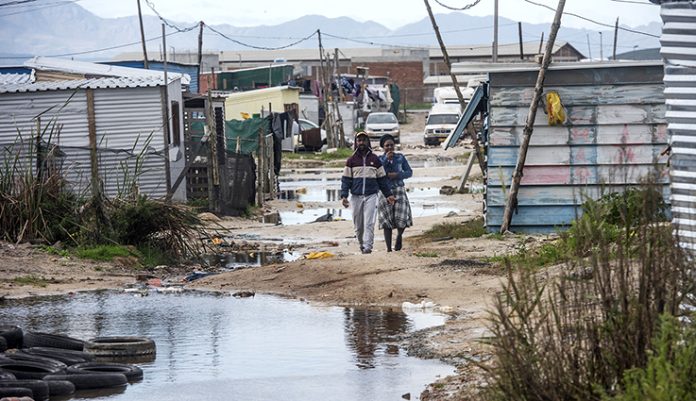United Nations under-secretary-general and UN-Habitat executive director Anacláudia Rossbach is calling for housing to be treated as a top priority at the G20 Leaders’ Summit taking place in Nasrec, Johannesburg.
Speaking under the theme “Solidarity, Equality, Sustainability”, she said housing must be placed at the centre of global development because it drives inclusive growth, reduces poverty and supports climate adaptation.
Rossbach described inadequate housing as a crisis that affects dignity, safety, health and life opportunities. She said the situation is getting worse as more people struggle to find proper housing due to climate change and conflict.
SA praised for deliverables in housing
Across Africa, many countries face this challenge, but Rossbach praised South Africa for delivering more than four million subsidised homes and housing opportunities since the onset of democracy. She said this was one of the world’s biggest state-led housing programmes.
“Beyond providing shelter; these investments have stimulated construction industries, generated jobs and contributed to economic growth.
“Housing policy has been a tool to address historical injustices and the legacy of inequitable ownership and settlement patterns – with efforts to expand access to housing and land for previously marginalised groups, tackle spatial segregation, and advance land reform and redistribution,” said Rossbach.
However, South Africa continues to face a backlog on government housing, while informal settlements continue to grow.
Poor housing has ripple effects
She referred to findings from the United Nations High Commission for Refugees showing that 123 million people have been forcibly displaced. She added that poor housing affects children’s studies and basic service delivery, as many families cannot access clean water and energy.
This leaves people excluded from opportunities and more vulnerable to climate shocks and health risks.
Rossbach emphasised that solutions already exist and are making a difference. She said housing policy must go beyond counting new units and instead create systems that link housing to infrastructure, transport and livelihoods.
For informal settlements, she said transformation must focus on safety and access to services so that communities can build long-term stability.
“Holistic, future orientated planning is essential. It must look beyond market fixes and housing supply to prioritise equity and accessibility for vulnerable groups defined by income, location, or housing status.
“Anticipating urban growth means promoting compact, mixed-use neighbourhoods that connect people to jobs, services and social life, and avoiding unplanned sprawl that isolates communities and drives up costs. Crucially, it also requires incremental self-help housing, which remains the most common way low-income households improve their living conditions over time,” said Rossbach.
She added that investment in social, cooperative and community-led housing must increase. These models have shown they can reach low-income households, but they remain underfunded and are often ignored in government policies.
Empower cities to tackle challenges
On multilevel governance, Rossbach said cities are central to achieving global goals.
“By 2050, 70% of the population will live in cities. Cities produce 70% of emissions and consume most energy. Cities manage housing, land, water, sanitation and mobility. They are also translating global frameworks – the New Urban Agenda and the Sustainable Development Goals – into action.
“Yet, cities and local government lack resources and authority. Empowering them means tackling challenges where they arise – close to communities – while enabling systemic change, improving public services, driving local economic development and accelerating climate action in partnership with local realities,” said Rossbach.
Kathryn Kotris, a researcher at the G20 Research Group, said the G20 has made only six commitments on housing. Their early decisions focused on financial rules and oversight in response to the global housing crash.
She explained that the first three commitments, made at Cannes in 2011 and Los Cabos in 2012, were centred on economic policy and financial regulation. Housing only returned to the agenda in 2017 at Hamburg and again in 2018 at Buenos Aires, where leaders made one promise on development and another on jobs and labour during relatively stable years with no major crisis.
Housing firmly back on the G20 agenda
At the Rome Summit in 2021, leaders made a specific commitment to address rising housing costs linked to energy shocks and the economic impacts that followed the Covid-19 lockdowns.
“The G20 Research Group has not assessed any housing commitments for compliance by G20 members. However, 31 commitments have been assessed on five subjects relevant to housing. Together, these housing-relevant commitments averaged 78% compliance, higher than the G20’s overall 71% average,” said Kotris.
“These limited and direct compliance assessments suggest no clear causes for G20 performance. Nonetheless, some suggestions for the Johannesburg Summit arise.
“With the strengthened global financial architecture relevant to mortgage financing, the G20 has an opportunity to expand lending for urbanisation programmes that include infrastructure and implement new green building technologies via modular home, prefabrication and multi-unit dwellings and also increase employment, diminish greenhouse gas emission in buildings while improving energy efficiencies,” said Kotris.



